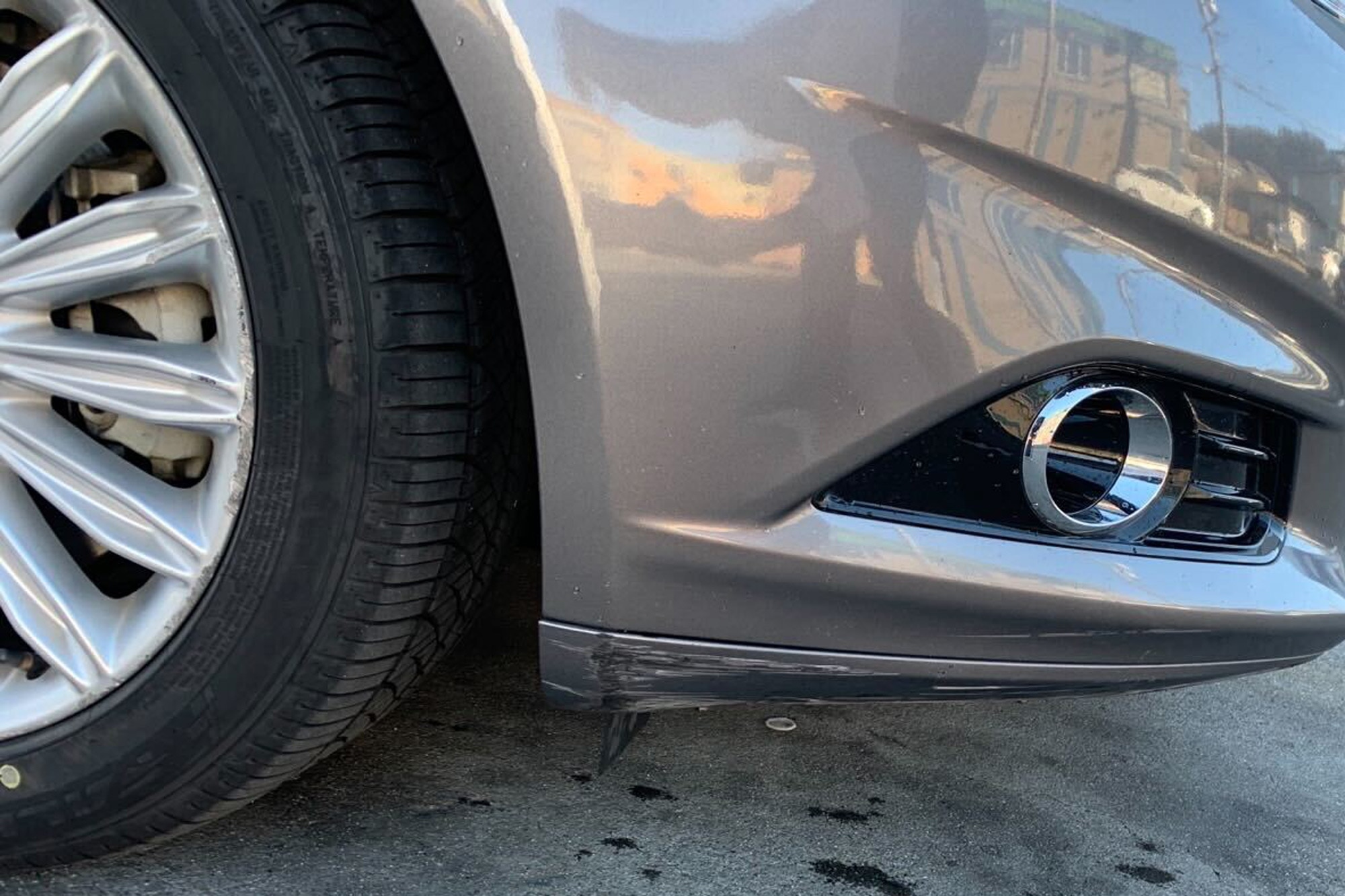What Is Curb Rash?
Marked-up rims are an unfortunate fact of life for many urban drivers.
 Belema Iyo | Capital One
Belema Iyo | Capital One
Scratched-up rims are a sad fact of life, especially for drivers who park in urban environments where space is tight and distractions are numerous. All those gouges, scuffs, and scrapes are known as curb rash. Here's a look at how you can get your car's curb rash repaired and how you can prevent it from happening again in the future.
Curb Rash Is Lurking Every Time You Park
Curb rash happens when a vehicle's wheels make contact with the sidewalk, curb, or other concrete. This almost always occurs while parking, but it can also result from encounters with potholes or speed bumps.
Curbed wheels usually are a purely cosmetic concern that poses no danger to the structure or the safety of the rim. Occasionally, however, bumping a curb can cause more serious damage, especially if contact is made at high speed. Hitting a curb hard enough can take a chunk out of the tire's sidewall or cause a bulge to appear in the rubber.
Getting Curb Rash Fixed Is Not Cheap
Curb-rash repair is usually treated as automotive body work. Painted wheels that have been damaged superficially will typically require sanding, priming, and repainting. Deeper gouges can be smoothed out with filler. Chrome and aluminum wheels could require a more in-depth refinishing process, which can add considerable costs.
While you can take your vehicle to any body shop for curb-rash repair or remove the wheel yourself and cart it to the garage, a more convenient option for many owners is to hire a mobile wheel-repair company that will come directly to you. A technician will arrive with the tools needed to take care of the damage and will do the work right where your vehicle is parked.
The cost of refinishing a curbed wheel can run between $50 and $500. Depending on its size and material, it might be cheaper to replace the rim rather than repair it.
Avoid Curb Rash With These Parking Tips
While you could install rubber rim guards that give you a bit of extra leeway, the real key to avoiding curb rash is to pay close attention to the edge of the sidewalk whenever you park. Tilt the mirror closest to the roadside so you can see straight down to the ground and hit the brakes if you feel the outside edge of the tire start to rub, as that will likely be the only warning you'll get before it's too late. When pulling away from a curb in the winter, it's important to go easy on the power to avoid sliding into the sidewalk.
You'll also want to keep a close eye on automated parking features that aren't always careful enough when maneuvering into a parallel spot. While the sensors used by these systems can detect the curb and any parked vehicles or other obstacles, they aren't always precise enough to avoid curb rash. The internet is full of stories of these systems marking up rims, so use them at your own risk, and be aware of your liability for any damage they might cause.
Written by humans.
Edited by humans.
 Benjamin Hunting
Benjamin HuntingBenjamin Hunting is a writer and podcast host who contributes to a number of newspapers, automotive magazines, and online publications. More than a decade into his career, he enjoys keeping the shiny side up during track days and always has one too many classic vehicle projects partially disassembled in his garage at any given time. Remember, if it's not leaking, it's probably empty.
Related articles
View more related articles